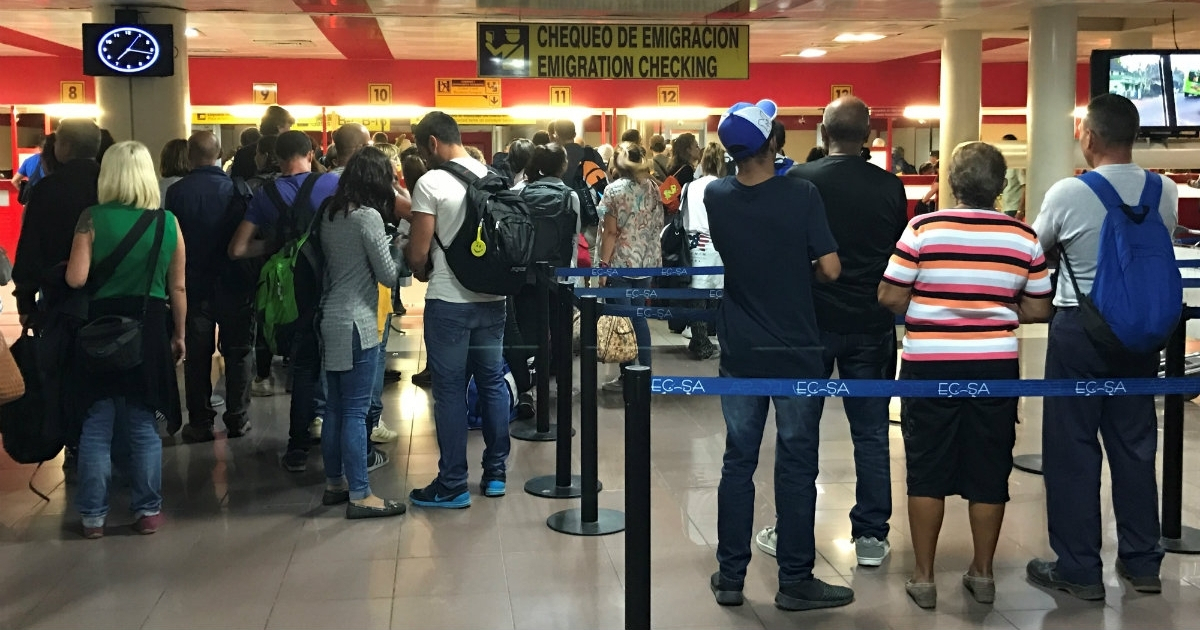
The National Tax Administration Office (ONAT) in Holguín has imposed travel restrictions on more than 1,300 individuals with tax debts, as reported by the provincial director of the agency, Jorge Félix Pérez Marrero.
This measure, part of a national strategy against tax evasion and income underreporting, aims to ensure that those with outstanding tax obligations cannot leave the country without first settling their accounts.
In statements to the official newspaper Granma, Pérez Marrero emphasized that this action not only recovers resources for social spending but also tackles disorder and impunity in the fiscal realm.
Although in the past some individuals were able to leave the country legally without fulfilling their tax obligations, the official stated that the ONAT is now implementing stricter controls to prevent such situations. "This is a priority need to preserve order and fiscal justice," he emphasized.
The immigration regulation has sparked debate among those who see it as reinforcing civic responsibility and those who view it as a restrictive measure given the current economic and migration crisis on the island.
In October 2023, the Cuban regime prevented a taxpayer who owed nine million pesos in taxes to the ONAT from leaving the country, according to a report in the official newspaper Escambray, which defended the legality of the measure that prohibits taxpayers with outstanding debts from leaving the territory.
Exactly one month prior, the government announced that citizens with debts to the entity would be regulated until their accounts are settled.
In April 2024, it was reported that 200 Cubans in Sancti Spíritus faced immigration regulations for declaring lower incomes than reported. However, no details were provided on what basis they claimed that these individuals provided false information.
Frequently Asked Questions about ONAT Migration Restrictions in Cuba
Why has the ONAT in Holguín prevented more than 1,300 Cubans from leaving the country?
The ONAT has implemented travel restrictions on more than 1,300 individuals in Holguín due to tax debts. This measure aims to ensure that those with outstanding tax obligations cannot leave the country without settling their accounts, as part of a national strategy to combat tax evasion and underreporting of income.
How does immigration regulation affect taxpayers with debts in Cuba?
Migration regulations prevent taxpayers with outstanding debts from leaving the country until they settle their pending accounts. This measure, implemented by the ONAT, strengthens the control over tax evasion and aims to uphold fiscal order and justice amid the economic crisis facing Cuba.
What additional measures has the ONAT taken to combat tax evasion in Cuba?
In addition to migration restrictions, the ONAT has implemented measures such as the preventive seizure of bank accounts, the withdrawal of authorizations, and the closure of businesses that fail to meet their tax obligations. These actions aim to ensure compliance with tax payments and combat tax evasion in the country, which has exceeded 800 million pesos in the first few months of 2024.
What are the consequences of failing to meet tax obligations in Cuba?
Failure to meet tax obligations can result in penalties such as fines, bank account seizures, business closures, and restrictions on leaving the country. The ONAT has intensified its efforts to pursue tax evaders to ensure compliance with tax laws and recover the necessary resources for the country's social expenditures.
Filed under: